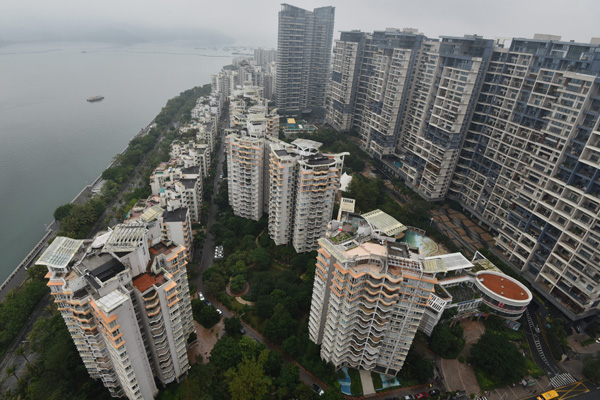 |
|
Residences facing the sea pictured in Sha Tau Kok, a town in Yantian District, Shenzhen, south China's Guangdong province, on January 21, 2016. [Photo/VCG] |
THE MUNICIPAL GOVERNMENT OF HANGZHOU, capital of East China's Zhejiang province, implemented a new housing policy on Monday, barring families that already own one or more houses from buying another. Will that help cool the overheated realty market? Beijing News comments:
Hangzhou is not the only city that has implemented a restrictive housing policy. With housing prices continuing to increase sharply, several second-tier cities such as Nanjing, Wuhan and Hefei have taken similar measures.
Yet such moves have failed to cool the market. Instead, just the opposite has happened. Expecting realty prices to rise more sharply, people have invested more aggressively in properties.
Three days before the Hangzhou authorities implemented the policy, people made a beeline to buy houses-almost 2,000 houses were bought in three days. Data show that 40 percent of the buyers are not Hangzhou residents, which means many, if not most, of the people invested in real estate, rather than buying the houses as residence, in the hope of making profits by selling them in the future.
Houses are no longer only for residing, but also for investment and speculation. Perhaps some local governments have to take the blame for this, because by selling land for commercial use at very high prices they earn huge revenues and, in turn, push up realty prices increasingly higher.
Worse, as local governments depend largely on land for their incomes, they are tied to the real estate market. That's why some of them implement restrictive policies when realty prices rise abruptly, but take measures to encourage the realty market when prices fall.
Shenyang, capital of Northeast China's Liaoning province, reportedly encouraged college and technical school students to buy houses with a zero-down-payment policy when realty prices fell.
So the restrictive measure Hangzhou has taken may not be truly restrictive, because it will only "suspend" the house rush, not reverse people's expectations of higher realty prices. It is also necessary to take monetary and financial measures, such as deleveraging the realty market, so that speculative capital can hardly enter the realty sector.